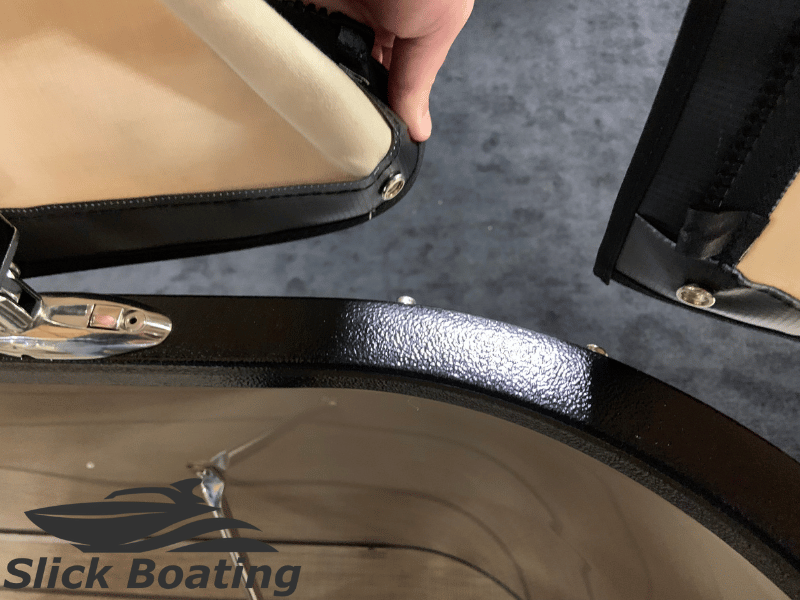Generally, it’s fine to tow your pontoon boat with the cover on, and often the best thing to do.
I say generally because there are situations where trailering your pontoon with the cover on is a bad idea.
Let’s cover the PROS and CONS of trailering your pontoon with the cover on.
Cover ON PROS:
- The cover protects the pontoon from rocks and other road debris that may hit it.
- If the cover goes over the whole pontoon, it acts as a barrier to keep objects like tubes in the boat.
- Keeps the rain off it, though it’s fine for the boat to get rained on, the rain often makes the boat dirty.
- Make the pontoon more aerodynamic, and let’s be honest, pontoons need all the help they can get with their square shape. This will help you get better gas mileage.
- Once you get to where you’re going, there is no need to put the cover on it, which is a pain to do.
Cover ON CONS:
- The cover can damage or scuff parts of the pontoon boat as it rubs on it.
- The cover can rip while being blown around on trailer.
- Some manufacturers don’t warranty mooring covers that are trailered.
- Something else to take off when you get the boat launch.
- The covers get stretched out and tend to pool water, which makes it even worse.
- The cover can fly off and land on another car.
- A cover can block some views for some towing vehicles while looking back.
- Can catch and act like a parachute and slow you down.
Best To Use A Trailerable Cover
It’s best you get a trailerable pontoon cover (ad) and don’t use the mooring, or snap on cover that came with your boat.
You could put the trailerable cover over the mooring cover to protect it, which is what I do for long-term storage anyway. For best results for towing, take the mooring cover off and put the trailerable cover on for trips that are NOT “around the corner”.
Mooring covers are made to be static and not hold up to the wind. Keep in mind, you may reach speeds faster than your pontoon can go on water while it’s on the trailer, so it may hold up when on the water but not so much on the road.
Also, trailerable covers tend to have a rope or ratchet system to attach it firmly to the trailer to keep it from blowing off. This type of cover is what you want, and what I use for long-term storage for my boat, it’s my cover for my cover!
Wind Can Stretch Your Cover
One of the reasons they say not to tow your pontoon boat with the mooring cover on is that it can stretch it out.
It is true, the cover will stretch out from the wind, but that is not the only thing that stretches out a cover.
The sun will also stretch it out along with the rain, which can puddle overtime and worsen it.
The fact of the matter, boat covers don’t last forever, and you should expect to replace it every 3 to 5 years. Trust me, the cost to replace the cover will be cheaper than the damage being done without having a cover on your pontoon.
